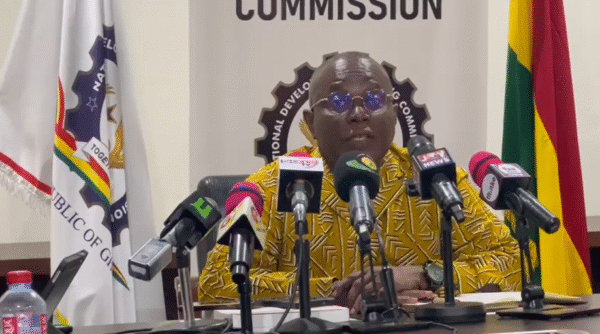Ghana’s long-standing problem of uncompleted public projects has become a major source of economic waste and inefficiency, the Chairman of the National Development Planning Commission (NDPC), Dr. Nii Moi Thompson, has cautioned.
Speaking at the launch of the 2024 National Annual Progress Report (APR) in Accra, Dr. Thompson said billions of cedis remain locked up in abandoned or stalled infrastructure projects across the country — what he described as “trapped capital” that undermines national productivity and fiscal discipline.
He attributed much of the problem to politically motivated project selection and weak institutional coordination, noting that many successive governments initiate new projects for political visibility while neglecting existing ones.
During the preparation of Ghana’s 40-Year National Development Plan, the NDPC partnered with a researcher from Oxford University to build a database on uncompleted projects. The study revealed that donor-funded projects recorded higher completion rates due to stricter oversight and accountability measures, while locally funded projects — particularly those financed through the District Assemblies Common Fund (DACF) and Internally Generated Funds (IGF) — were often abandoned for political reasons.
Dr. Thompson recounted instances where local government officials launched new infrastructure projects as campaign tools for parliamentary ambitions, leaving ongoing ones to deteriorate. “That is why we sometimes see completed or semi-completed markets in the bush, while traders remain on the streets,” he lamented.
He called for stronger institutional collaboration and accountability mechanisms to ensure continuity in public investment and prevent the waste of scarce national resources.
The 2024 APR, launched on Monday, October 13, 2025, assesses Ghana’s progress under the Agenda for Jobs II (2022–2025), detailing key achievements, challenges, and policy recommendations across economic, social, and governance sectors.



